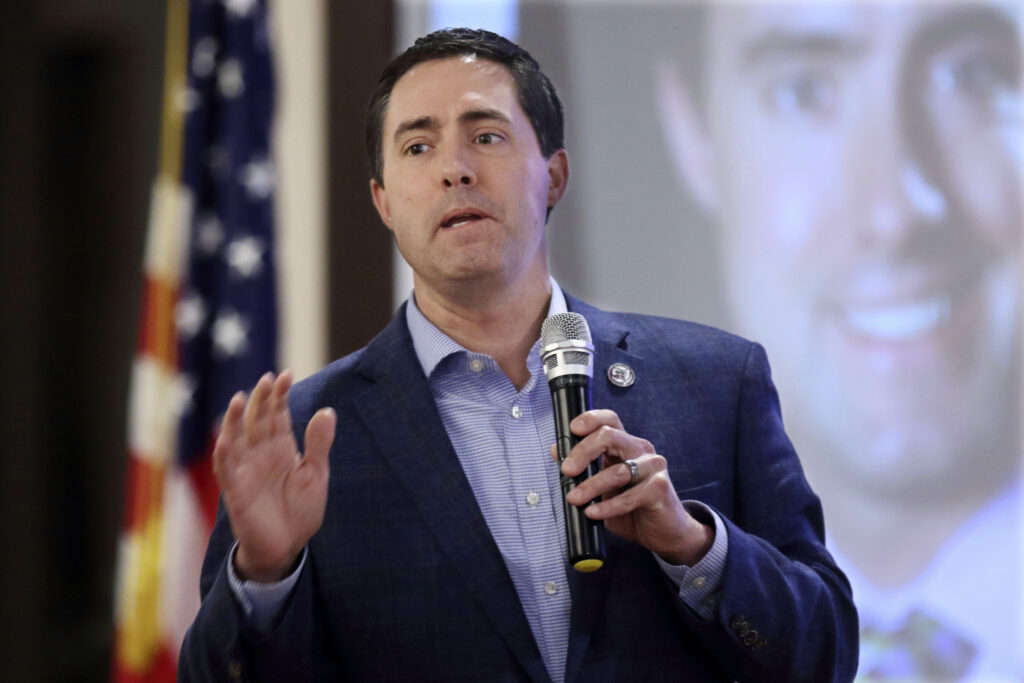Ohio Voters Must Show Naturalization Papers if Citizenship is Challenged

A federal judge denied the ACLU’s request Wednesday to block Ohio Secretary of State Frank LaRose (R) from requiring voters to show naturalization papers if their citizenship status is challenged at a polling place.
The ACLU, along with six naturalized citizens registered to vote in Ohio, argued in their lawsuit last week that LaRose changing the form that poll workers use when they challenge a voter’s eligibility violates a 2006 court order that prohibited the secretary of state from enforcing a similar documentary proof of citizenship requirement.
Judge Christopher Boyko, who issued the 2006 order, said that the plaintiffs in that case “submitted affidavits showing the harm or imminent harm they would suffer because they intended to vote and may not have been able to produce their certificates of naturalization if challenged at the polling place.” In Thursday’s ruling, he argued that the plaintiffs in the 2024 case were unable to provide that proof.
Democracy Docket reached out to the ACLU of Ohio for comment.
Also, Boyko said that the “legal landscape has significantly changed in the nearly two decades” since the 2006 order, including the passage of a 2019 law that is “likely limiting the risk of random challenges based on appearance or name or accent.”
He also references House Bill 458, an omnibus voter suppression law passed in early 2023, that requires all voters to provide photo IDs when voting. The law also requires a driver’s license or state ID card to be issued to a noncitizen to include a notation designating that the person is not a citizen.
If someone becomes a citizen but doesn’t get a new ID card and uses that at a polling place, their voter eligibility could be challenged. Instead of just answering a question about whether or not they are a citizen — on an official government document — they will need to produce their naturalization papers.
If they don’t have the documents with them, a voter can cast a provisional ballot. For their vote to count, they would have to go to the Board of Elections office within four days of Election Day — the cure period — to either show their documentation or a new ID without the noncitizen designation.
Noncitizen voting has been a significant issue among state and federal Republican officials during this election cycle, but noncitizen voting is already illegal and exceedingly rare.
Original post, Oct. 24
The ACLU asked a court Thursday to block Ohio Secretary of State Frank LaRose (R) from requiring voters to show naturalization papers if their citizenship status is challenged at a polling place in violation of a decades-old ruling.
“Requiring naturalized citizens to bring additional documentation to verify their eligibility to vote is not only burdensome and discriminatory, it’s unlawful,” Freda Levenson, legal director of the ACLU of Ohio, said in a statement.
In a 2006 federal district court order, Judge Christopher Boyko struck down a state law allowing poll workers to demand naturalized citizens show documentary proof of citizenship before permitting them to vote and prohibited the Ohio secretary of state from enforcing this requirement.
Since this court order, the form that Ohio poll workers use when challenging a voter’s eligibility states that if a voter answers yes to the question of whether they are a U.S. citizen, then they can cast a regular ballot.
This was the standard until October when LaRose revised the form — without notifying the public.
The form now states that if someone says they were not born a U.S. citizen but became one, then they must show their naturalization certificate to cast a regular ballot. If they don’t show this documentation, then they can cast a provisional ballot that will only be counted if an election board determines the voter is eligible.
On Thursday, the ACLU and the Brennan Center for Justice filed an emergency motion with the court on behalf of the plaintiffs in the 2006 case, asking Boyko to enforce his previous ruling and order LaRose to revoke his revised form and return to the previous version that complied with the court order.
“After nearly 20 years of compliance with the federal injunction, Secretary LaRose suddenly decided to defy the injunction and impose an 11th-hour requirement forcing naturalized citizens to produce these papers,” Levenson said. “We are hurrying back to the court, asking it to enforce its long-standing order.”
Early voting in Ohio is already underway, and Election Day is less than two weeks away.
Also, this isn’t the first time that LaRose has pushed his agenda to eliminate noncitizen voting, which is already illegal and exceedingly rare. Back in August, he announced that county election boards were purging almost 500 alleged noncitizen voters from the rolls.
Faten Husni Odeh, executive director of the Council on American-Islamic Relations of Ohio, said that LaRose’s latest action is just another attempt to disenfranchise minority voters in this country.
“This comes after a strong effort to register people to vote from more Black and brown communities across Ohio for this election,” Husni Odeh said. “It is a shameful act from Frank LaRose to add obstacles in the way of a certain group of Americans from exercising their right to participate in democracy.”